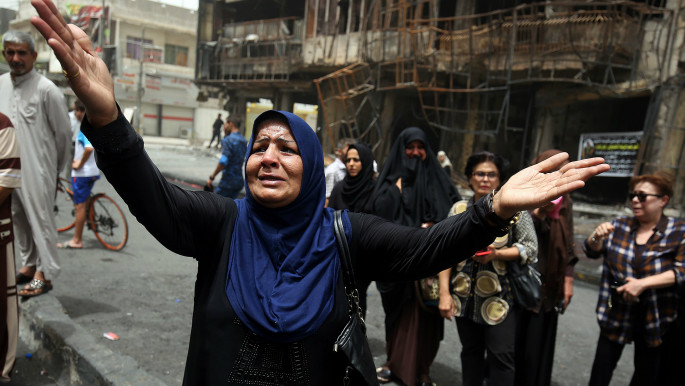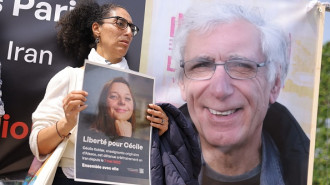Fleet of bomb-detecting vehicles left unused in Iraq
A fleet of "highly sophisticated" bomb-detecting vehicles have been left to gather dust in Iraq, despite a deadly wave of suicide attacks across the country.
The US-made vehicles had been left unused in a parking lot, while fake bomb detectors continued to be used on the streets by security forces.
Last week, a suicide attack hit the upmarket Karrada district filled with shoppers ahead of the Eid holiday, killing at least 292 people.
"The Ford model cars are custom made in the US to detect explosives and hazardous chemical materials used in bomb-making from 50 metres away," an Iraqi security source told The New Arab on Friday.
"The 14 cars were brought to Iraq earlier this year as part of US military aid and are ready to be used."
The source said that bomb-detecting cars have not been used in the field until now because they are "highly sophisticated" and need to be kept undercover at checkpoints, however, images reveal that the vehicles have been left parked out in the open.
 |
|
| The Karrada attack killed at least 292 people [Getty] |
"Authorities ordered that they be put aside until checkpoints at the main roads leading into Baghdad were brought up to date and specialised teams were trained to operate the detectors," he added.
Iraqi Prime Minister Haider al-Abadi issued a statement on Friday, hours after The New Arab's Arabic-language sister site broke the news of the unused vehicles, ordering an investigation into the matter.
Iraqi police have continued to use fake bomb detectors at checkpoints years after the British man who sold them to the Iraqi government was jailed in the UK for ten years for the scam.
In the wake of the devastating attack, Abadi issued orders to dismiss a number of security officials including the head of the Baghdad security command.
Interior Minister Mohammed Ghabban tendered his resignation after the attack and authorities announced the execution of five convicted terrorists and the arrest of 40 suspected as Baghdad attempted to boost its image.
Abadi has also ordered changes to Baghdad's security measures, including withdrawing the fake bomb detectors from use.
He also ordered security personnel manning checkpoints not to use their mobile phones while on duty – a frequent occurrence that reduces the effectiveness of the many checkpoints scattered around Baghdad.





 Follow the Middle East's top stories in English at The New Arab on Google News
Follow the Middle East's top stories in English at The New Arab on Google News

![The law could be enforced against teachers without prior notice [Getty]](/sites/default/files/styles/image_330x185/public/2178740715.jpeg?h=a5f2f23a&itok=xMdFOAIF)
